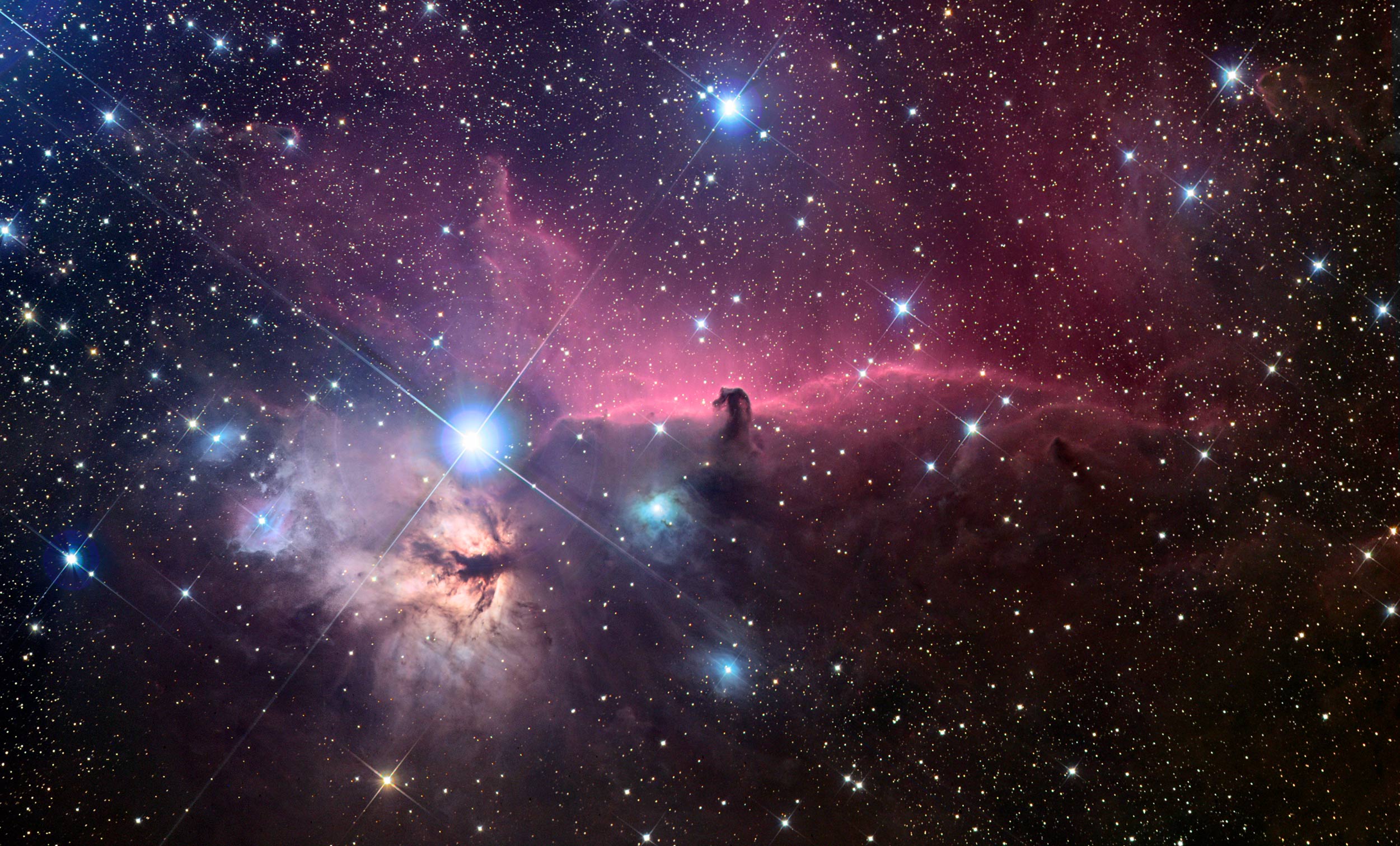
In yesterday's Part 1 post, I defined some basic terms and outlined Ian Barbour's four ways of understanding the interaction of science and religion. In this post, I'll argue that despite the public obsession with conflict, there's actually no conflict between religion and science - or, at least, between religion and science thought of in a certain way.
And if there's no conflict, there's no debate.
But how can that be?
But how can that be?
When Creationism and Hard Materialism say that the other is wrong - when they say there's a conflict between science and religion - they're assuming that the "data" of science and religion are data of the same kind. In other words, they're saying religion and science are doing the same thing in the same way. But are they?
The Bible, the inspired Word of God, is a written account of the encounter between people of faith and the God in whom they believe. Although it's God's Word, it's God's Word recorded by particular people in a particular place, time, and culture.
The authors of the Bible had no resources to talk about particle physics or evolution or waves or even gravity or a round earth or cars or simple machines. Ideas like these would be totally unintelligible, incomprehensible! The Bible contains their worldview, not ours. And it can't contain ours, because the terms of our worldview are completely different from theirs.
So, when people claim evolution is wrong because it's not in the Bible, it's important to remember that lots of things aren't in the Bible! Cars, for instance. Or pencils. Or ballpoint pens. Or telescopes. You get the idea. They writers of the Bible couldn't conceive of evolution; it took millennia to get there.
The same goes for, "I don't believe in evolution." Evolution isn't a proposition that can be believed or disbelieved in the way that people can choose to believe or not believe in an invisible God. It's the result of intensive observation and analysis of the world in which we live.
Finally, when people say, "Evolution is just a theory," they're confusing theory with hypothesis. While a hypothesis is one possible explanation among others (pending further experimentation) a theory is a summary statement of the most probable explanation of something on the basis of a vast amount of data. A theory is something that's so widely held it's unlikely to be disproven. Modified, yes. But disproven, no. Like gravity. That's a theory. And magnetism.
The Bible, the inspired Word of God, is a written account of the encounter between people of faith and the God in whom they believe. Although it's God's Word, it's God's Word recorded by particular people in a particular place, time, and culture.
Its truth may be timeless, but its creation is time-bound.
The authors of the Bible had no resources to talk about particle physics or evolution or waves or even gravity or a round earth or cars or simple machines. Ideas like these would be totally unintelligible, incomprehensible! The Bible contains their worldview, not ours. And it can't contain ours, because the terms of our worldview are completely different from theirs.
It's the same world and a different world all at once.
So, when people claim evolution is wrong because it's not in the Bible, it's important to remember that lots of things aren't in the Bible! Cars, for instance. Or pencils. Or ballpoint pens. Or telescopes. You get the idea. They writers of the Bible couldn't conceive of evolution; it took millennia to get there.
The same goes for, "I don't believe in evolution." Evolution isn't a proposition that can be believed or disbelieved in the way that people can choose to believe or not believe in an invisible God. It's the result of intensive observation and analysis of the world in which we live.
Finally, when people say, "Evolution is just a theory," they're confusing theory with hypothesis. While a hypothesis is one possible explanation among others (pending further experimentation) a theory is a summary statement of the most probable explanation of something on the basis of a vast amount of data. A theory is something that's so widely held it's unlikely to be disproven. Modified, yes. But disproven, no. Like gravity. That's a theory. And magnetism.
To be clear, I believe in the holiness and truth of the Bible. 100%. I believe the Bible is true. But for the reasons I just gave, I think it's wrong to believe it's true in the same way evolutionary science is true. If the terms of contemporary science weren't even available to the writers and editors of Genesis, the Bible can't even intend - or pretend! - to contain scientific data.
 As a result, Genesis' claim that God created the heavens and the earth by speaking God's word and sending the spirit over the waters can be true without conflicting with science. Although they deal with the same world, religion and science are doing two different things. They have different ways of doing things, and they speak different languages. It doesn't have to be an either-or.
As a result, Genesis' claim that God created the heavens and the earth by speaking God's word and sending the spirit over the waters can be true without conflicting with science. Although they deal with the same world, religion and science are doing two different things. They have different ways of doing things, and they speak different languages. It doesn't have to be an either-or.And this point goes both ways. Just as we can't draw science out of a text written in another time and place, we can't put 21st century scientific thinking into the Bible without violating the limits of science. (More on that later, when I tackle Integration approaches.)
And isn't this the simplest answer?
Think of all the mental gymnastics required to disprove centuries of scientific thought, which has real, visible, hard-to-doubt believability. But just as I've said that the Bible doesn't disprove science, science - since it's doing a different thing - can't (and shouldn't!) be used to disprove religious claims, because its data isn't made for that. While scientific data does explain the world we live in, its explanation isn't the same kind of explanation given by religion. John Haught and others have said that science is concerned with how things are, while religion and philosophy are concerned with why things are. So, science can't disprove religion, just as religion can't disprove science. Either case is like a cockatiel telling a turtle his shell doesn't fit, or a turtle telling a cockatiel how to comb his comb.
Contrary to popular belief, experiments can't prove or disprove God.
While God is the object of experience, God is not and cannot be the object of experiment. To treat God like the object of science is to stop doing science and enter the realm of philosophy and theology. When science tries to prove or disprove God, it's not science.
So, in short, it's not the data that causes conflict. It's what people do with the data that makes science and religion appear in conflict. When religion and science transgress the boundaries of their field - when they try to make their "data" do something it can't and shouldn't do - that's when conflict arises.
There's nothing in the data that makes an "either-or" necessary.
John Paul II's 1996 address to the Pontifical Academy of the Sciences makes this point well. Check it out here.
But what if science and religion respect their boundaries? What possibilities arise? Stay tuned for part three, where I'll tell you how I think science and religion should interact.


No comments :
Post a Comment